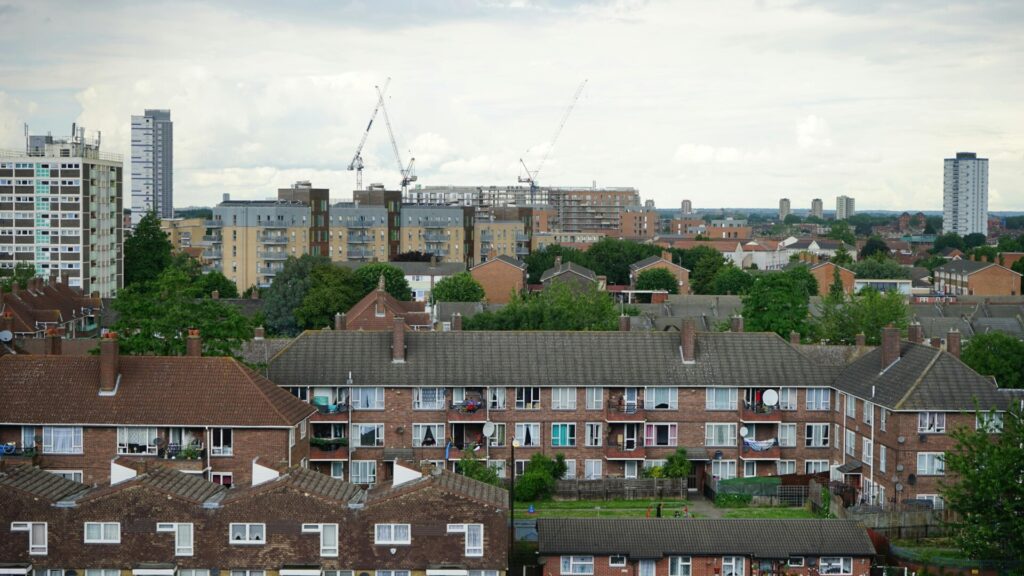At the end of this year nearly 70 million people will have been infected by Covid-19
worldwide and more than 1.5 million will have died in relation to the virus. In Europe 14 million people were infected and 350.000 people died because of or with the virus. Our health systems are tested to their limits, the economy is in the middle of a severe recession, poverty and unemployment are on the rise again, cultural life is severely limited, religious services are restricted in many countries, sometimes unduly. In his encyclical letter Fratelli Tutti Pope Francis wrote about “the pain, uncertainty and fear, and the realization of our own limitations brought on by the pandemic” (N°33). On the occasion of the International Human Rights Day 2020 Justice and Peace Europe offers to the wider European public the following reflection and statement on human rights in this universal crisis.
Human rights – the moral backbone of human society
In this precarious situation and in an understandable quest for a solid response to the epidemic and to develop a quick economic and social recovery governments and
international organisations were compelled to defend decisions to limit and restrict the exercise of fundamental freedoms and human rights.
On the occasion of the Human Rights Day 2020 on 10 December, the Executive Committee of the Conference of European Justice and Peace Commissions (Justice and Peace Europe) therefore wishes to affirm that human dignity and human rights are not dispensable concepts made for good weather periods alone. They are the moral backbone of human society. Historically, at state level, they were often enshrined in constitutions and fundamental laws following on the experience of political and social crises.
At the international level the United Nations adopted the Universal Declaration of Human Rights in 1948 after the traumatic experience of the Second World War and the Shoah. The Council of Europe followed in 1950 with the European Convention on Human Rights, which was completed in 1961 by the legally binding European Social Charter (the Charter) in recognition of the unity and interrelatedness of political and civil rights on the one hand and social and economic rights on the other. In 2000, the EU Charter of Fundamental Rights was proclaimed in the light not least of the legacy of the political, moral and social bankruptcy of Communist regimes in the Central and Eastern Europe.
Human Rights in times of emergency
The protection of fundamental freedoms and human rights – in their unity and
interconnectedness – transcends specific situations and precede other political goals.
Their limitation – even in duration and scope – is therefore an extremely delicate
undertaking. In this regard we are grateful to the Council of Europe toolkit for its member states, “Respecting democracy, rule of law and human rights in the framework of the Covid19 sanitary crisis from 7 April 2020”. It deals with derogations from the European Convention on Human Rights in times of emergency as foreseen in its Article 15.
It underlines the preeminence of the rule of law and democratic principles even in times of emergency. It also recalls relevant human rights standards: the right to life admits of no derogation; torture and inhuman treatment must remain prohibited. The signatory states of the Charter are held “to prevent as far as possible epidemic, endemic and other diseases” (Art. 11). Restrictions to the freedoms of conscience and expression need to be proportionate and established by law.
Concern for special groups
We share the concern expressed by the European Fundamental Rights Agency about the respect for the rights of older people and their special needs in a public health crisis (30 June bulletin), the special hardship endured by migrants and asylum seekers due the COVID-19 restrictions (27 July bulletin), the serious impact of the pandemic on poverty and discrimination of Roma and Travellers (29 September), the necessary safeguarding of children’s rights and increasing educational inequalities because of COVID-19 (20 November), the surge of domestic violence against women and girls during lockdown (25 November).
Social protection on the basis of Human Rights
Furthermore, we agree with the conclusions of a report from the UN Special Rapporteur for extreme poverty and human rights, 11 September 2020, who asked for building and reconsidering social protection systems on the basis of human rights for the post-Covid19 economic recovery.
Europe and the world as a whole face the deepest economic recession since 1929. In the course of 2020, the global economy will contract by an unprecedented 4.4 percent, and European economies by more than double that figure.
Unemployment has increased and is expected to grow. Worldwide an estimated 150
million people have already lost their job in the tourism sector alone. Covid-19, together with conflict and climate change, will lead to an increase in extreme poverty worldwide. After a long period of reduction in poverty levels, this will mark a renewed spike in the growth and spread of poverty since 1990. In addition, social-distancing and quarantine measures are taking a heavy toll on mental health and social bonding. A high level of social protection and spending will therefore be crucial in order to compensate and to empower responses on the part of societal actors.
Access to vaccination and the preference for the poor
However, before engaging in an economic, social and cultural recovery, humanity will have to overcome the virus itself. There is only limited hope that the virus will disappear spontaneously. Natural immunity, after having contracted the virus, seems to be limited as far as is known presently. Treating a viral illness remains an extremely complicated process to put in place. All this leaves the achievement of collective immunity through vaccination as the sole remaining solution for winning against the virus. Fortunately, and thanks to human ingenuity and technological prowess, several vaccines have been developed rather quickly.
However, before starting broad vaccination programs public authorities have to give their clearance, for every person has not only a right to receive a vaccine for free, but it also has to be effective and safe. Furthermore, a vaccination strategy
will have to be developed that deploys the vaccine on the basis of need rather than means. “If anybody should be given preference, let it be the poorest, the most vulnerable, those who so often experience discrimination because they have neither power nor economic resources,” as Pope Francis said on 25 September 2020 in his address to the General Assembly of the United Nations. This preference might also include those who care for the most vulnerable, be it for professional or family reasons. Whilst there is right to an effective, free and safe vaccine, there can be no obligation to take a vaccine. It will be impossible to enforce the vaccination of 70% of the population, the threshold of the population required to achieve collective immunity against the virus. Each citizen is responsible for her/his personal health and for the health of society as a shared public good. The anti-COVID-19 vaccination program is designed to serve, foster and protect personal and public health. Whilst the choice to take a vaccine is personal, that choice is an act of generosity and solidarity on the part of all and moral leadership by those who bear the responsibility of leadership in all sections of society.
On Human Rights Day 2020 Justice and Peace Europe wishes to renew its commitment to the promotion and respect for fundamental freedoms and human rights. The fight against the virus Covid-19 cannot be won at the cost of human rights. On the contrary, a sustainable recovery from this global pandemic requires governments to uphold their obligations. Civil society, media and NGOs also have a critical role to play.
Seventy years ago, the European Convention on Human Rights was signed in Rome.
Its preamble states: “Human rights and fundamental freedoms are the foundation
of justice and peace in the world”.
The current pandemic may change the world but not the foundation of justice and peace.
10 December 2020
The Executive Committee of Justice and Peace Europe:
H.E. Mgr. Noel Treanor, Bishop of Down and Connor, President
Maria Krabbe Hammershoy, Vice-President
Stefan Lunte, General Secretary
Isabel Cuenca Anaya
Daniel Darmanin
Cécile Dubernet
Arnaud Gorgemans
Marek Mišák
http://www.juspax-eu.org/en/dokumente/201210-Declaration-Human-Rights-and-COVID.pdf







